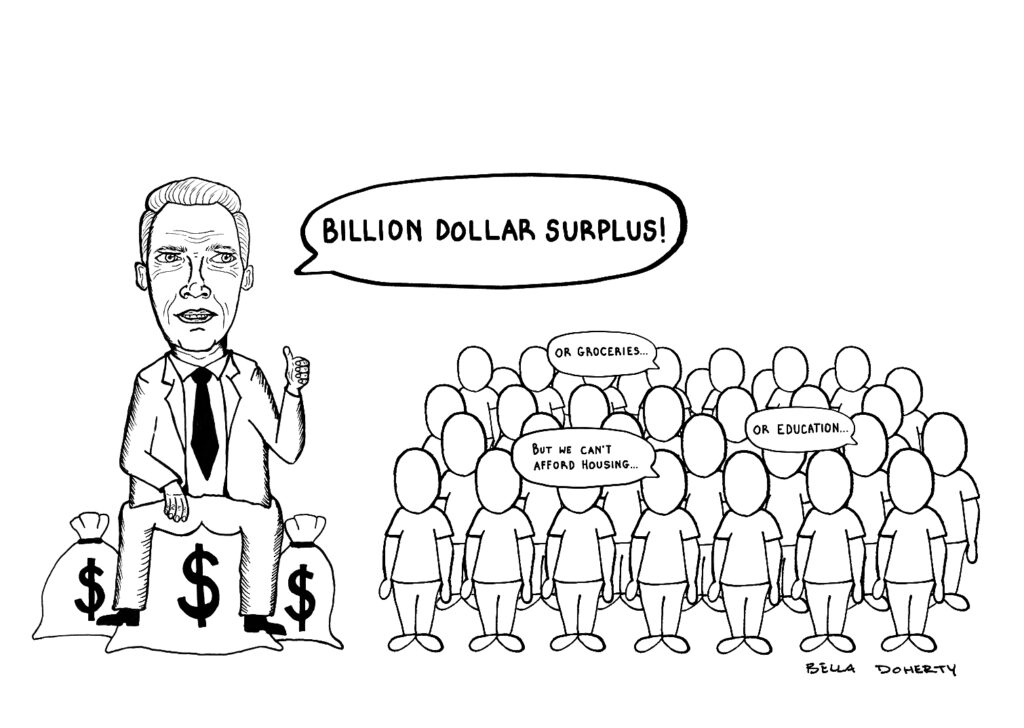The Government of New Brunswick has recently announced its achievement of a 1.01 billion dollar surplus in the 2022-23 fiscal year. Although this news was gleefully received by the Higgs administration, the opposition remains critical.
The Brunswickan spoke about the surplus with David Coon, from the Green Party. Coon currently serves as an MLA at the New Brunswick Legislature, representing the Fredericton South constituency.
“Well, simply put, a lot more revenue came in than they had built into their budget,” Coon explained.
“They created a budget last year that underestimated dramatically how much revenue they had to work with.”
“That meant that they did not invest the money that needed to be invested to solve some of the big problems New Brunswickers are facing.”
He continued: “Instead, they gave billions of dollars to bankers to put all that money on the debt.”
It is still unclear how the Government of New Brunswick will spend this money. However, according to Finance Minister Ernie Steeves, the administration is planning on announcing “affordability measures” soon.
These measures are meant to help New Brunswickers combat the effects of inflation, and may include tax cuts.
Steeves told CBC: “We figure on using a number of different options as we have in the past, but yeah, I like tax cuts. I like to have that money in my pocket, rather than in the government’s pockets, personally, and I am sure everyone else does too.”
Coon is not too fond of the idea of tax cuts, and calls for more government investment across a wide array of areas.
“Well, before they consider significant tax cuts, what they need to consider is making investments to solve real problems.”
“We need to end the doctor shortage,” he stated, “so they need to be putting money into hiring nurse practitioners and other health professionals to work with doctors in their practices and in community health centers.”
This way, said Coon, “we will solve the doctor shortage so everyone will have a healthcare provider.”
“They need to lift people out of poverty by increasing income assistance rates and in providing livable income for people who are unable to work.”
“They need to build affordable housing that’s nonprofit and Co-Op housing so that people can afford to live in housing.”
He also brought up coastal defenses, “to keep people’s communities safe from being flooded” and “to keep the erosion from eating away at our coasts and swallowing up people’s homes.”
In deciding what to do with the surplus money, Coon made a few suggestions.
“They could increase wages and provide bonuses to both nurses and care workers working in nursing homes, so that we can actually hold on to them and prevent them from quitting.”
“And recruit more people into that work, so that nursing homes and hospitals are not so short handed when it comes to nurses.”




